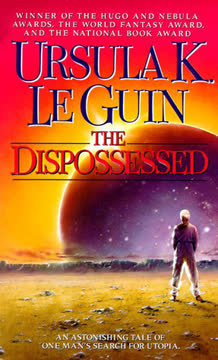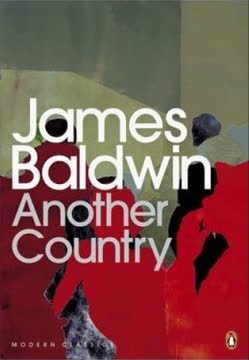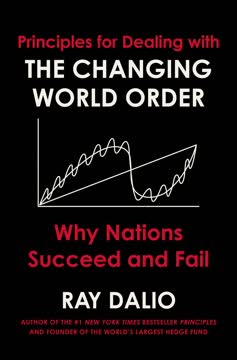Key Takeaways
1. Continuous Renewal: The Key to Societal Vitality
A society that has learned the secret of renewal will be a more interesting and more vibrant society, not in some distant future but at once.
Renewal as survival strategy. Societies, like organisms, must continuously renew themselves to survive and thrive. This process involves adapting to new challenges, embracing change, and maintaining vitality in the face of decay. Renewal is not just about innovation, but also about bringing the results of change into line with enduring purposes and values.
Balancing continuity and change. Effective renewal requires a delicate balance between preserving valuable traditions and embracing necessary changes. This interweaving of continuity and change allows a society to:
- Maintain its distinctive character and style
- Absorb change without losing its core identity
- Ensure that change is directed towards meaningful goals
Characteristics of renewing societies:
- Flexibility and adaptiveness
- Openness to new ideas and experiences
- Willingness to question assumptions and traditional ways
- Capacity to learn from mistakes and adjust course
- Ability to nurture and unleash creative talent
2. Self-Renewal: A Lifelong Journey of Personal Growth
The individual who has become a stranger to himself has lost the capacity for genuine self-renewal.
Combating personal rigidity. As we age, we tend to narrow the scope and variety of our lives, settling into fixed patterns and relationships. Self-renewal involves consciously breaking these patterns, remaining open to new experiences, and continuously developing our potentialities.
Key elements of self-renewal:
- Self-knowledge: Understanding one's strengths, weaknesses, and motivations
- Openness to experience: Maintaining curiosity and receptivity to new ideas
- Courage to fail: Embracing risk and learning from mistakes
- Lifelong learning: Continuously acquiring new skills and knowledge
- Adaptability: Remaining flexible in the face of change
Motivation and commitment. Self-renewal requires sustained motivation and a commitment to personal growth. This involves finding activities and goals that align with one's deepest convictions and values, providing a sense of purpose and meaning beyond mere self-interest.
3. Creativity and Innovation: Engines of Progress
Creativity requires mastery of the medium in which the work is to be done, but is something more than sheer mastery.
Understanding creativity. Creativity is not limited to a select few "geniuses" but exists on a spectrum, with many people capable of achieving impressive levels of creativity under favorable circumstances. It involves both mastery of a domain and the ability to transcend established patterns and norms.
Characteristics of creative individuals:
- Openness to experience and inner emotions
- Independence from social pressures
- Flexibility in thinking and approach
- Capacity to find order in diverse experiences
- Tolerance for ambiguity and uncertainty
- Strong intrinsic motivation and drive
Fostering innovation. Organizations and societies can promote innovation by:
- Creating environments that support and reward creative thinking
- Protecting dissenters and nonconformists
- Encouraging diverse perspectives and interdisciplinary collaboration
- Providing resources for experimentation and risk-taking
- Balancing the need for structure with the freedom to explore
4. Overcoming Obstacles to Renewal
The aging society or organization has developed defenses against new ideas—"mind-forged manacles," in William Blake's vivid phrase.
Identifying barriers to change. As societies and organizations mature, they often develop rigid patterns of thought and behavior that resist innovation. These obstacles can include:
- Excessive reliance on established procedures and traditions
- Fear of failure or ridicule
- Vested interests that benefit from the status quo
- Complacency and loss of adaptiveness
- Overspecialization and compartmentalization
Strategies for overcoming resistance:
- Cultivating a culture that values continuous learning and improvement
- Encouraging constructive criticism and diverse viewpoints
- Creating opportunities for cross-functional collaboration
- Implementing systems for regular review and renewal of practices
- Developing leaders who model adaptability and openness to change
The role of crisis. While not desirable, crises can sometimes serve as catalysts for renewal by forcing organizations and societies to confront outdated assumptions and practices. The challenge is to create a sense of urgency for change without waiting for external shocks.
5. Organizing for Adaptability and Change
The society interested in continuous renewal will strive to be a hospitable environment for the release of creativity.
Designing flexible organizations. To foster renewal, organizations must be structured in ways that promote adaptability and innovation. This involves:
- Flattening hierarchies and encouraging bottom-up initiatives
- Creating cross-functional teams and networks
- Implementing systems for rapid prototyping and experimentation
- Balancing centralized coordination with decentralized decision-making
- Cultivating a diverse workforce with varied skills and perspectives
The importance of pluralism. A society capable of continuous renewal benefits from:
- Multiple centers of power and decision-making
- Diverse sources of information and ideas
- Tolerance for differing viewpoints and traditions
- Freedom of movement between organizations and sectors
New organizational forms. Emerging models that promote adaptability include:
- Project-based teams that form and disband as needed
- Networks of independent professionals collaborating on specific tasks
- Hybrid organizations that combine elements of for-profit and non-profit structures
- Platform-based ecosystems that facilitate collaboration among diverse actors
6. Balancing Individuality and Social Responsibility
The mature person must achieve a considerable measure of independence if he is to meet the standards implicit in our ideals of individual freedom and dignity; but at the same time he must acknowledge the limitations of the self, come to terms with his membership in the society at large and give his allegiance to values more comprehensive than his own needs.
The paradox of freedom. True individual freedom requires both independence from social constraints and a sense of connection to larger social purposes. This balance involves:
- Developing personal autonomy and critical thinking skills
- Recognizing the interdependence of individuals within society
- Cultivating a sense of social responsibility and civic engagement
Challenges of modern society:
- Balancing individual rights with collective needs
- Maintaining diversity while fostering social cohesion
- Combating alienation and isolation in complex, large-scale organizations
- Preserving human dignity in the face of technological and bureaucratic pressures
Strategies for cultivating responsible individualism:
- Promoting education that emphasizes both personal development and civic responsibility
- Creating opportunities for meaningful participation in community and civic life
- Fostering a culture that values both individual achievement and social contribution
- Developing institutions that protect individual rights while promoting collective well-being
7. The Power of Commitment and Meaning
Man is in his very nature a seeker of meanings.
The human need for purpose. People have an innate drive to find meaning and purpose beyond mere self-interest. This search for meaning involves:
- Organizing experiences into coherent patterns
- Seeking to understand one's place in the larger scheme of things
- Striving towards goals that transcend immediate personal gratification
Components of meaningful commitment:
- Alignment with personal values and beliefs
- Connection to larger social or spiritual purposes
- Opportunities for personal growth and self-actualization
- Sense of efficacy and ability to make a difference
Fostering meaningful engagement. Societies and organizations can promote commitment by:
- Articulating clear and inspiring visions of the future
- Providing opportunities for individuals to contribute to larger causes
- Recognizing and celebrating diverse forms of meaningful contribution
- Creating environments that support personal growth and self-discovery
8. Fostering a Future-Oriented Mindset
The society capable of continuous renewal not only is oriented toward the future but looks ahead with some confidence.
Characteristics of future-oriented societies:
- Openness to change and new possibilities
- Belief in the ability to shape the future through collective action
- Willingness to invest in long-term goals and projects
- Capacity to imagine and plan for alternative scenarios
Balancing optimism and realism. While excessive optimism can lead to complacency, a degree of confidence in the future is necessary for renewal. This involves:
- Acknowledging challenges while maintaining hope
- Cultivating resilience in the face of setbacks
- Celebrating progress while recognizing ongoing work
Strategies for promoting future-orientation:
- Encouraging long-term thinking in education and policy-making
- Fostering intergenerational dialogue and collaboration
- Investing in research and development of emerging technologies
- Creating platforms for envisioning and debating alternative futures
9. Moral Renewal: Reinvigorating Shared Values
The moral order is not something static, it is not something enshrined in historic documents, or stowed away like the family silver, or lodged in the minds of pious and somewhat elderly moralists. It is an attribute of a functioning social system.
The dynamic nature of moral values. Moral renewal involves not just preserving traditional values, but actively reinterpreting and reinvigorating them in light of new challenges and circumstances. This process requires:
- Engaging in ongoing dialogue about shared values and their implications
- Confronting contradictions between stated ideals and actual practices
- Adapting moral frameworks to address emerging ethical dilemmas
Challenges to moral renewal:
- Moral relativism and skepticism
- Fragmentation of shared values in diverse societies
- Rapid technological and social change outpacing ethical reflection
- Cynicism and disengagement from moral discourse
Strategies for moral renewal:
- Promoting ethical education that emphasizes critical thinking and moral reasoning
- Creating forums for intergenerational and cross-cultural dialogue on values
- Encouraging leadership that models ethical behavior and moral courage
- Fostering a culture that celebrates moral exemplars and ethical innovation
Last updated:
FAQ
1. What is "Self-Renewal: The Individual and the Innovative Society" by John W. Gardner about?
- Explores Growth and Renewal: The book examines the processes of growth, decay, and renewal in individuals, organizations, and societies, emphasizing the importance of continuous self-renewal.
- Focus on Individual and Society: Gardner argues that social renewal ultimately depends on the capacity of individuals to renew themselves and remain adaptable, creative, and motivated.
- Addresses Modern Challenges: The book discusses the threats posed by rigidity, apathy, and conformity in modern mass society, and how these can stifle innovation and vitality.
- Practical and Philosophical: It blends practical advice on fostering creativity and self-development with philosophical reflections on meaning, commitment, and the conditions necessary for a free and innovative society.
2. Why should I read "Self-Renewal" by John W. Gardner?
- Timeless Relevance: The book addresses enduring questions about personal growth, societal change, and the challenges of living in a rapidly evolving world.
- Actionable Insights: Gardner offers practical strategies for individuals and organizations to avoid stagnation and foster continuous innovation and adaptability.
- Holistic Perspective: It connects personal development with broader social and organizational renewal, making it valuable for leaders, educators, and anyone interested in positive change.
- Inspiration for Change: The book encourages readers to care deeply, commit to meaningful goals, and resist complacency, providing motivation for both personal and collective transformation.
3. What are the key takeaways from "Self-Renewal" by John W. Gardner?
- Self-Renewal is Essential: Continuous self-renewal is necessary for individuals and societies to remain vital, creative, and resilient in the face of change.
- Balance of Continuity and Change: Successful renewal requires balancing tradition and innovation, maintaining core values while adapting to new challenges.
- Obstacles to Renewal: Rigidity, vested interests, conformity, and fear of failure are major barriers to renewal that must be consciously addressed.
- Role of Motivation and Commitment: Deep motivation, meaningful commitment, and a sense of purpose are crucial for sustaining renewal and overcoming apathy.
4. How does John W. Gardner define "self-renewal" in "Self-Renewal"?
- Ongoing Personal Growth: Self-renewal is the lifelong process of developing one’s potential, remaining open to new experiences, and continuously learning.
- Breaking Out of Ruts: It involves escaping self-constructed prisons of habit, routine, and fixed attitudes that limit adaptability and creativity.
- Self-Knowledge and Acceptance: Gardner emphasizes the importance of self-knowledge, honest self-assessment, and acceptance as foundations for renewal.
- Courage and Motivation: The willingness to risk failure, maintain motivation, and pursue meaningful goals are key elements of self-renewal.
5. What are the main obstacles to self-renewal and innovation according to "Self-Renewal" by John W. Gardner?
- Rigidity and Complacency: Fixed habits, organizational routines, and resistance to change create "mind-forged manacles" that stifle renewal.
- Vested Interests: Accumulated possessions, status, and established ways of doing things can make individuals and organizations less willing to take risks.
- Fear of Failure: As people age, they often become less willing to risk failure, which narrows their experiences and limits growth.
- Conformity and Mass Society: The pressures of modern, large-scale organizations and mass culture can suppress individuality and creativity.
6. How does "Self-Renewal" by John W. Gardner connect individual renewal to societal and organizational renewal?
- Individuals as Seedbeds: Gardner argues that the vitality of societies and organizations depends on the self-renewal of their individual members.
- Creative Environments: Societies must create environments that nurture creativity, dissent, and innovation to remain adaptive and resilient.
- Pluralism and Flexibility: Organizational and societal structures should encourage pluralism, dispersed power, and tolerance for dissent to facilitate continuous renewal.
- Leadership and Talent Mobility: Effective renewal requires systems that identify, develop, and mobilize talent from all segments of society.
7. What practical advice does John W. Gardner offer for fostering self-renewal in "Self-Renewal"?
- Pursue Lifelong Learning: Take responsibility for your own education beyond formal schooling, seeking new skills and experiences throughout life.
- Embrace Failure and Risk: Be willing to try new things and accept failure as a necessary part of growth and learning.
- Cultivate Motivation and Meaning: Engage in activities that you care deeply about and that connect you to purposes beyond yourself.
- Maintain Openness and Flexibility: Stay receptive to new ideas, perspectives, and experiences, and periodically reassess your habits and beliefs.
8. How does "Self-Renewal" by John W. Gardner address the role of education in renewal?
- Education for Versatility: Gardner advocates for education that develops skills, habits of mind, and attitudes that enable continuous learning and adaptation.
- Beyond Specialization: While specialization is necessary, individuals should also retain the capacity to function as generalists and adapt to new roles.
- Critical Thinking and Creativity: Schools should emphasize curiosity, critical thinking, and the ability to innovate, rather than rote memorization of past knowledge.
- Lifelong Process: Education should be seen as a lifelong endeavor, with the ultimate goal of shifting the responsibility for learning to the individual.
9. What does "Self-Renewal" by John W. Gardner say about the relationship between individuality and society?
- Dignity and Worth of the Individual: The book upholds the centrality of individual dignity, autonomy, and moral responsibility within society.
- Limits of Autonomy: Complete individual autonomy is neither possible nor desirable; meaningful individuality is achieved in relationship with others and with values beyond the self.
- Balance of Freedom and Commitment: True freedom involves both self-affirmation and commitment to larger purposes, avoiding both alienation and mindless conformity.
- Role of Social Structures: Societies must support individual development while also fostering shared values and a sense of community.
10. How does "Self-Renewal" by John W. Gardner discuss the importance of meaning, purpose, and commitment?
- Happiness Through Purpose: Gardner argues that true happiness comes from striving toward meaningful goals, not from comfort or gratification alone.
- Commitment Beyond the Self: Mature individuals make commitments to causes, people, and ideals larger than themselves, which provides direction and fulfillment.
- Search for Meaning: Humans have an innate hunger for meaning, seeking frameworks that give dignity and coherence to their lives.
- Dangers of Meaninglessness: Without meaningful commitments, individuals may fall into apathy, fanaticism, or destructive forms of dedication.
11. What are the key concepts of innovation and creativity in "Self-Renewal" by John W. Gardner?
- Innovation as Lifeblood: Continuous innovation is essential for the survival and vitality of societies and organizations, not just technological but also social and intellectual.
- Traits of Creative Individuals: Openness, independence, flexibility, tolerance for ambiguity, and the ability to find order in chaos are common traits of creative people.
- Role of Environment: Creativity flourishes in environments that protect freedom of thought, tolerate dissent, and minimize rigid conformity.
- Systematic Innovation: Modern organizations should pursue innovation systematically, not just in products but in their own structures and processes.
12. What are the best quotes from "Self-Renewal" by John W. Gardner and what do they mean?
- "Apathy and lowered motivation are the most widely noted characteristics of a civilization on the downward path." – Gardner warns that the greatest threat to renewal is not material weakness but a failure of heart and spirit.
- "We are forever 'building the church and killing the creed.' Form triumphs over spirit." – This highlights the danger of letting procedures and routines overshadow the original passion and purpose of institutions.
- "The self-renewing man knows that if he has no great conviction about what he is doing he had better find something that he can have great conviction about." – Gardner emphasizes the importance of meaningful motivation for personal and societal renewal.
- "The only stability possible is stability in motion." – Reflecting the need for continuous adaptation, Gardner suggests that true stability comes from ongoing change and renewal.
- "We shall renew neither ourselves, nor our society, nor a troubled world unless we share a vision of something worth saving." – Renewal requires a shared sense of purpose and values that inspire commitment and action.
Review Summary
Self-Renewal is widely praised as a timeless and insightful work on personal and societal growth. Readers appreciate Gardner's emphasis on continuous learning, creativity, and adapting to change. The book explores how individuals and organizations can avoid stagnation through self-renewal. Many find it surprisingly relevant despite its age, offering valuable perspectives on innovation, leadership, and societal progress. While some note dated language, most consider it a thought-provoking read that encourages reflection on personal development and social responsibility. Critics highlight its occasionally vague or repetitive nature.
Similar Books










Download PDF
Download EPUB
.epub digital book format is ideal for reading ebooks on phones, tablets, and e-readers.




